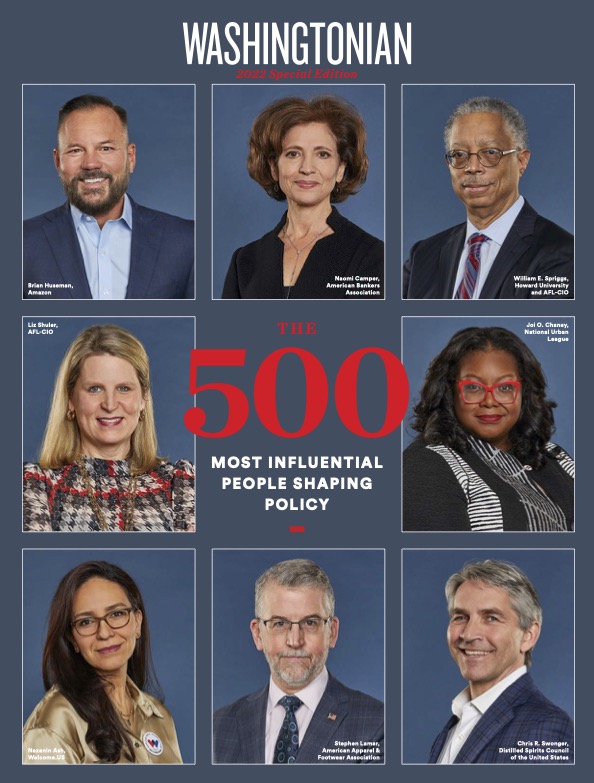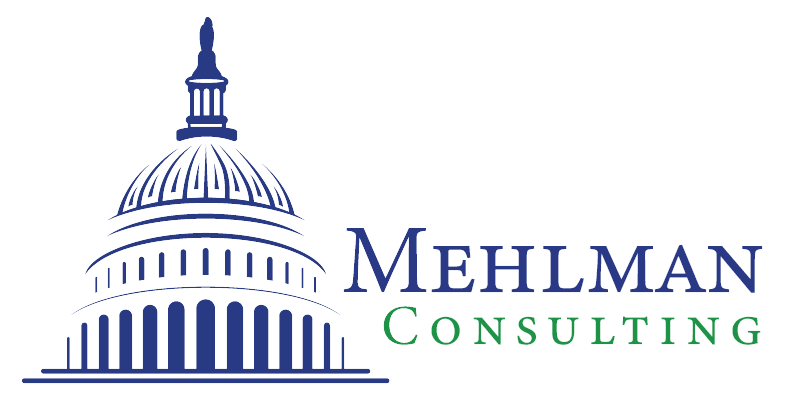NEWS
Washington’s Most Influential People
May 3, 2022 | By Washingtonian Staff

Washington’s Most Influential People: THE 250 EXPERTS AND ADVOCATES—OUTSIDE THE GOVERNMENT—WHO’LL BE SHAPING THE POLICY DEBATES OF THE YEARS TO COME.
There’s an old story about a senator being honored at a big gathering. He asks the waiter for an extra pat of butter for his roll. The waiter refuses. The senator explains that he’s a powerful man and this gathering is in his honor. So the waiter explains that he has power, too. He’s in charge of the butter. One pat per person and he moves on. Power. Everyone in federal Washington thinks they have it, and most want more of it.

Influence, unlike power, can be more subtle. It resides all over our capital city, for better or for worse. Our goal in this list was to highlight people who have significant influence over policy, the stuff that shapes our country. We avoided those in government who actually write and execute laws: Their authority comes from the voters, and as we’ve learned, voters can be fickle. Instead, we sought out people with deep subject-matter knowledge, the ones who understand the nuances and complexities of how and where laws affect business, government, and society—the ones who are going to be maintaining that knowledge no matter who gets voted in or voted out of office.
Nels Olson, who heads the search firm Korn Ferry’s Global Government Affairs Practice and often gets retained to help trade associations and corporations find leaders, has a way of describing the sort of influence clients are looking for: “No matter the type of organization, the most sought-after candidates can formulate both policy and strategy from the ground up as well as communicate effectively to all audiences.”
Of course, policy areas vary from mainstream to obscure. We couldn’t include them all. We tried to select areas on which we felt the new administration and Congress would focus—the subjects that will dominate the next few years. Our roster includes denizens of Washington’s think tanks and universities, former public servants as well as those who have always worked in the private sector. We’ve included people from across the ideological spectrum. But we’ve tried to avoid “hired guns,” whose influence might derive purely from their Rolodex or their communications skills. Instead, we’ve sought out those whose advocacy derives from policy expertise within their sector.
Finally, we didn’t include people entering the new administration, a group that changed daily as we went to press.
Policymaking changes as governments come in and out of power. But the bedrock underlying it—expertise that enables public service and good-faith debate and explains why idealists still come to Washington—remains. Here’s a look at who’s wielding that influence right now.
